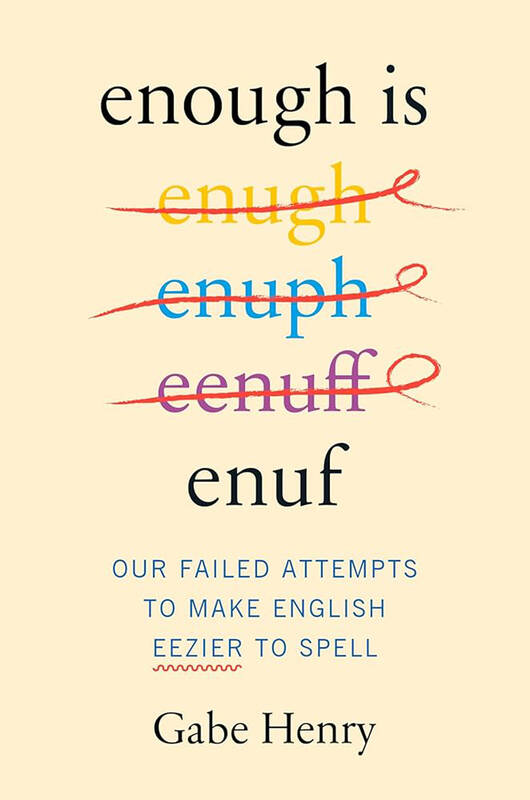You may be familiar with the ghoti, the shiny animal with fins that lives in the water; perhaps you even have your own ghoti tank. Ghotis evolved long ago, but they didn’t get their name until the 19th century, when jokesters noted that, thanks to the weirdness of English spelling, the word “fish” might be written with a “gh,” as in “rough,” an “o,” as in “women” and a “ti,” as in “lotion.”
The idea of the ghoti is often attributed to George Bernard Shaw, but there’s no evidence that he coined it. He was, however, a proponent of simplified spelling — an enterprise that, in some form or other, goes back centuries. From “through” to “though” and “trough,” whether you’re a child or learning English as a second language, getting the spelling right is a nightmare. Efforts to fix that might seem niche, but Shaw is one of many luminaries who have had a go. Charles Darwin, Mark Twain and Theodore Roosevelt also took up a cause that has left its mark on American and British culture in unexpected ways.
In his amusing and enlightening new book, Gabe Henry traces the history of these efforts, beginning with a 12th-century monk named Orrmin, continuing through the beginnings of American English and the movement’s 19th-century heyday, finally arriving at textspeak.

English is a mess, Henry explains, thanks to its complicated parentage, which involves the Celts, the Romans, the Anglo-Saxons, the Vikings and the Normans. William Caxton, England’s first printer, also deserves some of the blame: his standardization of spellings in 1476 meant he “froze our orthography during a time of linguistic flux. Our spellings today are therefore anchored to a pronunciation spoken sometime between Chaucer and Shakespeare, back when we voiced the S in aisle, the G in gnarl and the K in knife.”
Spelling reformers had their work cut out for them, then. And for most of history, as the book’s title suggests, their efforts have been doomed. In his quest to clarify different vowel sounds, Orrmin just made things even more confusing by adding extra letters (for example, to indicate the short vowels in cat and dog, he opted for catt and dogg). When Benjamin Franklin took up the cause, the result was illegible: “Diir Paali,” began a letter to his friend Polly, who learned his system, then told him to drop it.
In the 19th and early 20th century, the movement managed to gain some traction. The Spelling Reform Association, an organization founded in Philadelphia during celebrations marking the US centennial, came up with a list of 10 simplifying commandments — for instance, omitting silent letters and trading “ph” for f in words like alfabet. (Later, naturally, the society changed its name to the Speling Reform Asoshiashun.) The group “managed to achieve something thought impossible,” Henry writes: with members from both sides of the Atlantic, “they had mended the linguistic rift between America and England.”
But despite a sister organization in the UK, led by Darwin and Lord Tennyson, the project met with skepticism, struggled to secure funding and fizzled after a few decades.
Not everyone failed: Noah Webster’s American dictionary successfully excised letters he thought were extraneous, such as “u” in “color” and “honor”; 19th-century humorists known as the Phunny Phellows got plenty of mileage from silly looking phonetic spellings, and their stage performances helped lay the groundwork for modern standup comedy; the suffragist Eliza Burnz — born Burns — linked shorthand writing with liberation at a time when many women worked as stenographers; Joseph B Towe, who had once been enslaved, used simplified spelling to help others in his situation learn to read and write.
And while the movement largely died out in the late half of the 20th century, simplified spelling has found an unexpected champion in the mobile phone. Texting has, of course, made simplifications such as U for “you” and “thru” for “through” more common. Some complain about this as further evidence of the “deterioration” of language; I have at times been one of them. But Henry’s book gave me a new perspective, cheering for the simplification crowd.

The Taipei Times last week reported that the rising share of seniors in the population is reshaping the nation’s housing markets. According to data from the Ministry of the Interior, about 850,000 residences were occupied by elderly people in the first quarter, including 655,000 that housed only one resident. H&B Realty chief researcher Jessica Hsu (徐佳馨), quoted in the article, said that there is rising demand for elderly-friendly housing, including units with elevators, barrier-free layouts and proximity to healthcare services. Hsu and others cited in the article highlighted the changing family residential dynamics, as children no longer live with parents,

It is jarring how differently Taiwan’s politics is portrayed in the international press compared to the local Chinese-language press. Viewed from abroad, Taiwan is seen as a geopolitical hotspot, or “The Most Dangerous Place on Earth,” as the Economist once blazoned across their cover. Meanwhile, tasked with facing down those existential threats, Taiwan’s leaders are dying their hair pink. These include former president Tsai Ing-wen (蔡英文), Vice President Hsiao Bi-khim (蕭美琴) and Kaohsiung Mayor Chen Chi-mai (陳其邁), among others. They are demonstrating what big fans they are of South Korean K-pop sensations Blackpink ahead of their concerts this weekend in Kaohsiung.

Oct 20 to Oct 26 After a day of fighting, the Japanese Army’s Second Division was resting when a curious delegation of two Scotsmen and 19 Taiwanese approached their camp. It was Oct. 20, 1895, and the troops had reached Taiye Village (太爺庄) in today’s Hunei District (湖內), Kaohsiung, just 10km away from their final target of Tainan. Led by Presbyterian missionaries Thomas Barclay and Duncan Ferguson, the group informed the Japanese that resistance leader Liu Yung-fu (劉永福) had fled to China the previous night, leaving his Black Flag Army fighters behind and the city in chaos. On behalf of the

I was 10 when I read an article in the local paper about the Air Guitar World Championships, which take place every year in my home town of Oulu, Finland. My parents had helped out at the very first contest back in 1996 — my mum gave out fliers, my dad sorted the music. Since then, national championships have been held all across the world, with the winners assembling in Oulu every summer. At the time, I asked my parents if I could compete. At first they were hesitant; the event was in a bar, and there would be a lot